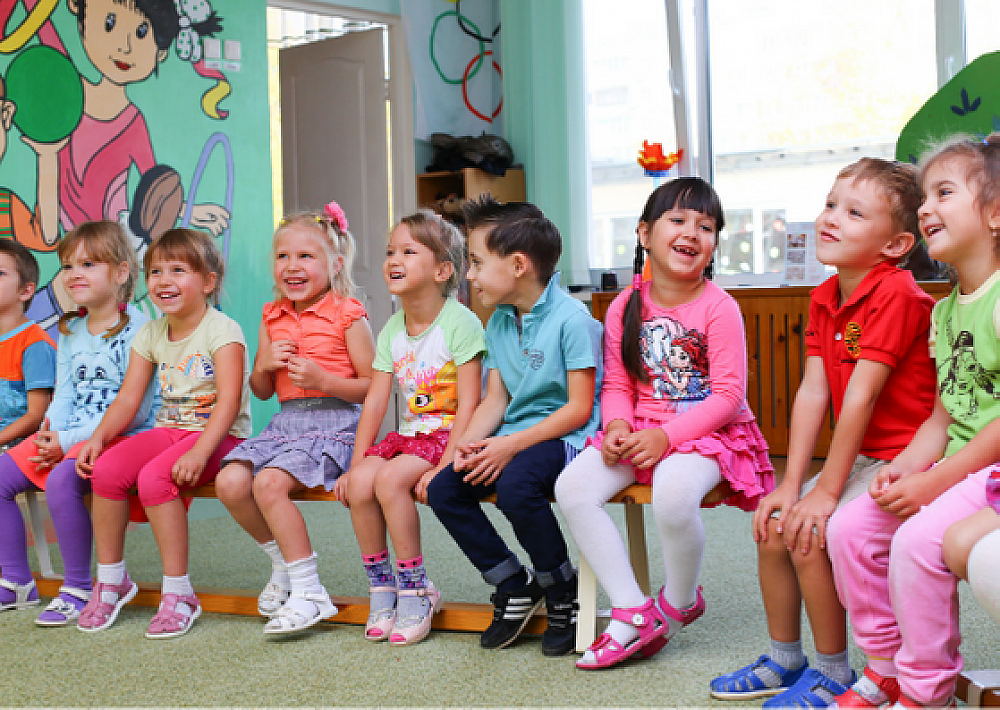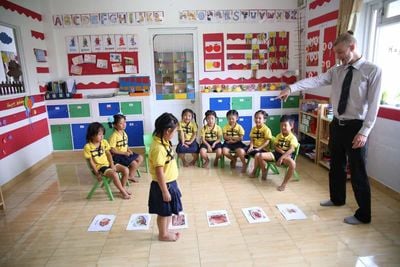Teaching EFL in a Kindergarten - What Is It Like?

Imagine what a child may feel when going to kindergarten for the first time. The new environment tends to be intimidating. EFL kindergartens are even more so due to foreign faces that speak foreign languages. In this essay, I'm going to talk about important aspects teachers need to embrace when teaching EFL in a kindergarten. I will refer specifically to the advantages of using play, establishing an environment of clear rules and the language enrichment that comes with oral storytelling. These ideas stem from my +5 years of teaching EFL in international kindergartens in China.
Table of Contents
Is it possible if you don't know the kids' mother tongue?
Are you ready to teach ESL kindergarteners?
This post was written by our TEFL certification graduate Ilsa A.
Is it possible if you don't know the kids' mother tongue?
Building rapport with children in a second language, without utilizing their mother tongue to emotionally connect, though challenging is possible. Observation of children's preferences and personalities within the learning environment at all times is always important, especially during the first days of school. These careful observations will all teachers clues as to how to establish rapport with students that then facilitate the student-teacher bonds required for effective EFL acquisition. Observation grants teachers the knowledge necessary to engage the children from their areas of interests.
This Might Be Interesting: Observed Teaching Practice Course

Miracle of Play
The most effective way to engage any child, even in their mother tongue, is through play. But how to play with a kid if the teacher doesn't speak his language and the child does not speak the teacher's language? The answer is simple. By utilizing exaggerated body language, concrete objects and a genuine sense of humor, kids will be open to a connection with their instructor, no matter how foreign their face may look or their language may be. Being genuine is key because children can feel when an adult is being fake. A teacher's enthusiasm, energy, attitude, and humor play an important role when establishing rapport with children, especially in EFL environments where a teacher is determined to avoid the use of translation as a way of emotionally engaging the learner.
Rules are important
Another important consideration when setting up an effective environment for the acquisition of English as a foreign language is to establish rules and discipline. Naturally, if children don't understand the foreign language this presents a difficulty. The use of exaggerated tones, gestures, and body language when speaking to emphasize good behavior and to discourage mischievous behaviors are essential to maintaining a positive learning environment. For example, if a teacher smiles and says, "I really like to see you sharing with your friend", they are likely to receive a big smile in return. The student is perceiving that the teacher liked what he or she just did and is inviting him/her to repeat the same action in the future. In a similar way, a teacher can do the same with a mischievous student who may be fighting over a toy by saying, "I really like when you share with your friend" but accompanying the speech by an exaggerated frown and furled eyebrows. The child will quickly understand that the behavior is undesirable.

The use of games to establish rules is another effective tool to foster a vibrant EFL environment. All kindergarteners must learn to line up. This can be difficult if we are adamant about avoiding the use of translation. There is a game/song called, "Penguins attention!" they can help EFL children learn to line up. The exaggerated tones and playfulness of the game invite students to play it overusing tones to get the students attention when transitioning activities if the students in a playful manner to engage the requirement of lining up. This game helps students avoids the feeling of being commanded to do something. Instructors must be graceful, silly and playful when modeling to the children the motions of the "Penguins attention" game.
Teaching material matters
One final very important aspect to consider is the use of authentic material for language acquisition. One example is the use of oral storytelling of fairy tales. Before telling a story, EFL teachers should introduce high-frequency words using a PPT. This will allow students to recognize the words, later on, as the story is being told. The use of props such as pictures and objects to highlight the target vocabulary, as the story is being told, is another effective EFL tool. Each story should be told at least three times before introducing a new story. After each telling, the instructor should use the PPT to elicit, once again, the target vocabulary.
Are you ready to teach ESL kindergarteners?
Teaching ESL kindergarteners can be challenging yet with an informed approach can be incredibly effective and hence rewarding. All instructors must have a clear plan on establishing rules, incorporating play based on the observation of children's interests and enriched linguistic moments through the use of authentic materials. The rewards of teaching are numberless once we begin to witness our children achieving their goals. There is a joy that comes with changing a child's life that only a kindergarten instructor can know because we are a child's first educators. When teaching EFL in a kindergarten a teacher should always remember that they are not just teaching English to children, but that they are also educating them for the next steps of their lives.
Apply now & get certified to teach english abroad!
Speak with an ITTT advisor today to put together your personal plan for teaching English abroad.
Send us an email or call us toll-free at 1-800-490-0531 to speak with an ITTT advisor today.
Related Articles:
- Differences between Young Learners and Adult Learners in the TEFL Environment
- How Learning A Foreign Language Made Me a Better ESL Teacher
- The 5 Best Places to Learn French When Teaching English Abroad
- Top 5 Skills Teachers Need To Set Their Students Up For Success
- 4 Super Easy Tips for Teaching Vocabulary to Young Learners
- All the Documents You Will Need to Teach English Abroad



